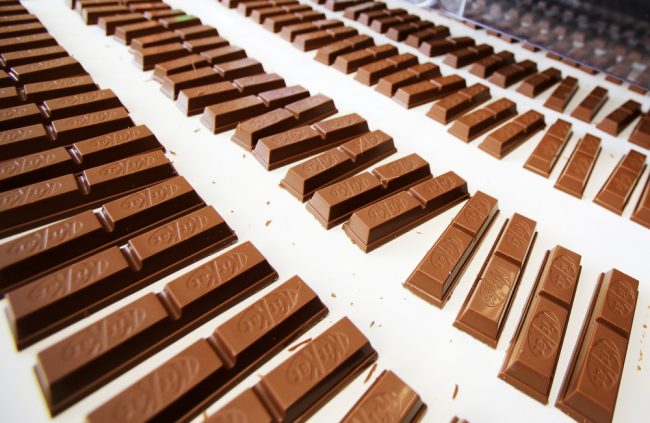Nestlé, the food giant behind products like Nescafé, Aero chocolate and the famous four-fingered bar, is considering increasing its prices in the UK to compensate for the plummet in the pound’s value, reports The Telegraph.
The company’s chief executive, Paul Bulcke, included price rises among a number of options as Nestlé wrestles with the devaluation of sterling.
Saying that Nestlé would only introduce price increasing “responsibly” and after speaking to trade partners, Mr Bulcke’s comments will nevertheless raise fears that his company will follow Unilever in attempting to pass the currency burden onto consumers.
Inflated prices of goods as a result of the falling pound against the dollar are expected to hit consumers from early next year.
Richard Baker, chairman of the British Retail Consortium, has said that price hikes are inevitable, with some sources saying “virtually every major brand” has plans to increase prices by double digit percentage points.
Jon Cox, an analyst at Kepler Cheuvreux, said that a Nestlé price increase was likely. “Their biggest businesses in the UK are chocolate and coffee and those commodities are obviously not produced in the UK, so Nestlé is probably going to have to increase prices at some point.”
An increase in Nestlé’s prices may be mirrored by other manufacturers, according to Fraser McKevitt, head of retail and consumer insight at Kantar Worldpanel.
“There are upward pressures on pricing in the market, and that is a result of the falling pound, fairly clearly, and we’ve also come off the back of two years of falling prices, which is against the historical norms.
“We anticipate by the end of the year that inflation will be returning to the grocery market, and those prices increases will be across the board, not just limited to Nestlé.”
Mr Bulcke’s warning comes as Nestlé cut its forecasts for next year after sales in the first nine months of this year rose at their weakest pace for more than a decade.
The world’s biggest food company had forecast that its full-year organic sales would rise by 4.2pc. But slow growth in developed economies and a poor performance in China have forced it to revise that figure down to 3.5pc.
In total, Nestlé generated sales of 65.5bn Swiss francs (£54bn) over the nine month period.
Sales growth in its Europe, Middle East and North Africa division was its most sluggish at 2.1pc, which the food giant attributed to instability in the Middle East and deflation in Europe.
Its Asia, Oceania and sub-Saharan Africa region grew 2.5pc, boosted by strong sales of Kit Kats and Maggi noodles in India.
The results reflect a turnaround for Nestlé on the Indian sub-continent. Last year its global full-year results were dragged downwards by the scandal of lead being found in the Maggi noodles, which forced the company to remove the popular product from the shelves of Indian supermarkets.
Nestlé’s fastest-growing region was the Americas, where coffee products and pet care propped up sales in the United States and a Mexican taste for dairy underpinned growth further south.
Mr Bulcke defended the figures, arguing that growth was broad-based and that the company gained or held on to market share “in most of our businesses.”
Shares in Nestlé, whose primary listing is on the SIX Swiss exchange, fell 0.74pc to CHF 74.1 (£61).
The potential Nestlé price hike comes a week after Tesco resolved a dispute with Unilever. The retailer’s website had begun to run out of products including Marmite and Ben and Jerry’s ice cream as the supermarket played hardball over the manufacturer’s attempt to increase prices by 10pc.
Twenty-four hours after the stand-off emerged, Tesco and Unilever struck a deal behind closed doors to allow the beloved spread back into the aisles.


